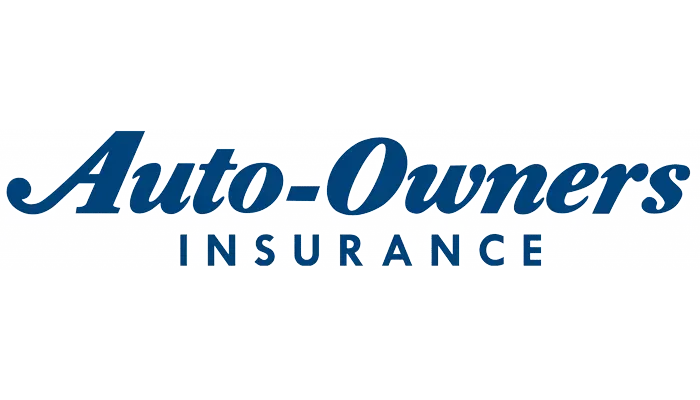TRUSTED BY LEADING FINANCE TEAMS FOR STREAMLINED PAYMENT PROCESSING & COI COMPLIANCE





Common accounts payable COI compliance challenges

Payment delays from missing insurance documents
Accounts payable teams face constant payment delays when vendors submit invoices without current certificate of insurance documentation. Manual verification processes halt invoice processing while staff chase missing certificates from vendors who delay submissions or provide expired coverage. These delays impact vendor relationships, disrupt cash flow management, and create administrative backlogs that prevent timely payment processing.

Invoice Processing & Compliance Coordination
Accounts payable teams struggle to coordinate invoice processing with certificate verification requirements, leading to payment authorization delays and vendor complaints. Manual systems cannot efficiently verify insurance compliance during invoice review processes, creating bottlenecks that impact month-end closing and payment schedules. Compliance gaps discovered during payment processing force invoice holds and emergency certificate collection.

Chasing Vendor COI's
Accounts payable staff spend significant time requesting certificates from vendors who fail to provide current insurance documentation with invoice submissions. Vendors ignore certificate requests, submit expired policies, or provide inadequate coverage that doesn't meet company requirements. Manual follow-ups with non-responsive vendors consume time that should be spent on core accounts payable activities and financial processing tasks.
SimpleCerts eliminates accounts payable COI challenges with intelligent automation designed specifically for invoice processing workflows and payment authorization systems.

How SimpleCerts makes COI tracking & verification easy for accounts payable

Central Vendor Management & Certificate Tracking
Maintain comprehensive vendor records with integrated certificate tracking that provides instant visibility into insurance compliance status during invoice processing. Centralized dashboards show real-time certificate status across all vendor relationships while automated renewal management prevents coverage lapses that could delay future payments. Accounts payable teams gain complete oversight of vendor insurance compliance without manual verification processes.

Automated Invoice & COI Integration
Integrate certificate verification directly into invoice processing workflows to eliminate payment delays and manual certificate collection. Automated systems verify vendor insurance status during invoice review while flagging any compliance issues before payment authorization. Real-time certificate monitoring ensures vendors maintain current coverage throughout payment relationships without disrupting accounts payable operations.

Vendor Certificate Status & Compliance Tracking
Access real-time certificate status for all vendors during invoice processing to identify compliance issues before payment decisions. Automated tracking provides instant visibility into which vendors have current coverage while flagging expired or missing certificates that require attention. Self-service vendor portals allow suppliers to maintain their own certificate documentation while automated verification confirms coverage status without manual review processes.
Ready to eliminate payment delays and streamline invoice processing compliance?
What our COI Tracker Includes
Complete certificate of insurance management that combines cutting-edge AI technology with expert human verification. SimpleCerts delivers affordable, fully managed COI tracking that eliminates compliance headaches for property managers, contractors, and risk professionals.

Fully managed COI Software Solution
Automated certificate collection, compliance tracking, and renewal management. Upload your requirements once and let our platform handle vendor onboarding, document verification, and ongoing monitoring. Real-time dashboards keep you informed without the manual work.

Most Affordable COI Solution
Enterprise-grade certificate of insurance software at small business prices. No hidden fees, setup costs, or per-user charges. Get unlimited policyholder certificates, automated compliance alerts, and dedicated support starting at industry-leading rates.

Human COI Verification Included
When compliance issues arise or certificates need follow-up, our certified risk management professionals step in to handle vendor communication and resolution. You get AI-powered efficiency with human expertise managing the complex situations that require personal attention.
Accounts Payable and Certificate of Insurance Compliance Integration
Accounts payable teams play a critical role in vendor certificate of insurance compliance by serving as the final checkpoint before payment authorization. Invoice processing workflows must include insurance verification to ensure payments are only released to vendors who maintain adequate coverage, protecting organizations from liability exposure while maintaining efficient payment processing and vendor relationship management.
Understanding Accounts Payable COI Requirements
Certificate of insurance verification in accounts payable operations involves coordinating payment authorization with insurance compliance requirements specified in vendor agreements and organizational risk management policies. Many companies require current certificates before processing vendor payments, making accounts payable teams responsible for verifying insurance compliance during invoice review processes.
Different payment types may require varying levels of certificate verification. One-time service payments might need basic certificate confirmation while recurring vendor relationships require ongoing compliance monitoring throughout the payment relationship. Construction payments often mandate additional verification of workers compensation and specialized coverage, while professional service payments may emphasize errors and omissions coverage verification.
Three-way matching processes in accounts payable often include certificate verification as a fourth component, ensuring that purchase orders, receipts, invoices, and insurance certificates all align before payment authorization. This comprehensive verification approach protects organizations from liability exposure while maintaining thorough documentation for audit and compliance purposes.
Accounts Payable COI Compliance Challenges
Traditional approaches to certificate verification in accounts payable create processing bottlenecks that delay payments and strain vendor relationships. Manual verification processes require staff to review certificates during invoice processing, contact vendors for missing documentation, and coordinate with risk management teams for compliance confirmation. These manual processes consume time and create payment delays that impact vendor satisfaction and cash flow management.
Vendor master file management becomes complex when certificate information must be maintained alongside standard vendor data including payment terms, tax information, and contact details. Outdated certificate information in vendor files can lead to payment delays when compliance is verified during invoice processing, while manual updates to certificate records create administrative overhead and potential for data entry errors.
Month-end closing processes face complications when certificate verification requirements delay invoice processing and payment authorization. Accounts payable teams must balance pressure to process payments quickly with compliance requirements that may slow authorization workflows, creating tension between operational efficiency and risk management obligations.
Modern Solutions for Accounts Payable COI Management
Successful accounts payable operations require seamless integration between certificate tracking and financial management systems. API connections with ERP platforms enable automatic certificate verification during invoice processing while maintaining synchronized vendor records and compliance status information.
Payment authorization workflows can include automated certificate verification as a standard approval criterion, ensuring payments are only processed for vendors with current coverage. This integration eliminates manual verification steps while maintaining comprehensive compliance documentation for audit and regulatory purposes.
Audit and Compliance Documentation
Payment processing audits often require comprehensive documentation of insurance verification procedures and compliance confirmation throughout payment relationships. Automated systems maintain detailed records of certificate verification activities, payment authorization decisions, and compliance status changes that support internal audits and external reviews.
Regulatory compliance requirements in certain industries may mandate specific insurance verification procedures before payment authorization. Automated systems can enforce these regulatory requirements while maintaining the detailed documentation needed for compliance reporting and regulatory audit support.
Buy SimpleCerts COI Tracking Software Today
Certificate of insurance management represents a critical contract administration function that risk managers cannot ignore. Automated solutions eliminate administrative burden while ensuring comprehensive compliance across diverse property portfolios.
Want to learn more?
Frequently Asked Questions -
COI Software Accounts Payable
How do accounts payable teams verify vendor insurance before processing payments?
SimpleCerts integrates certificate verification directly into invoice processing workflows, automatically checking vendor insurance status during invoice review. Real-time verification confirms coverage compliance before payment authorization while flagging any issues that require attention before payment processing.
What happens when vendors submit invoices without current certificates?
Automated systems place payment holds on invoices from vendors without current certificate coverage while sending notifications to both vendors and accounts payable teams. Vendors receive clear instructions for certificate submission while accounts payable staff can track compliance status and release payments once certificates are verified.
How can accounts payable integrate COI verification with existing ERP systems?
SimpleCerts integrates with major ERP platforms including SAP, Oracle, and Microsoft Dynamics through API connections that provide real-time certificate status during invoice processing. Integration maintains synchronized vendor records while automating compliance checks within existing payment authorization workflows.
Can accounts payable teams set up automatic payment holds for non-compliant vendors?
Yes. Automated workflows can prevent payment authorization for vendors without current certificate coverage while maintaining processing efficiency for compliant suppliers. Payment holds are automatically released once certificate compliance is verified and documented within the integrated system.
How does SimpleCerts handle certificate renewals and vendor notification?
utomated renewal tracking sends notifications to vendors before certificate expiration while providing accounts payable teams with renewal status updates. Vendors can update certificates through self-service portals while automated verification confirms compliance for continued payment processing.
What reporting capabilities are available for accounts payable compliance audits?
Comprehensive audit trails document all certificate verification activities, payment authorization decisions, and compliance status throughout vendor payment relationships. Automated reports provide detailed compliance documentation for internal audits and external reviews with complete historical records.
How do accounts payable teams handle rush payments for vendors without current certificates?
Emergency payment procedures can include expedited certificate verification processes while maintaining compliance standards. Automated systems provide immediate certificate status confirmation while escalation procedures ensure urgent payments receive appropriate risk management review and authorization.


